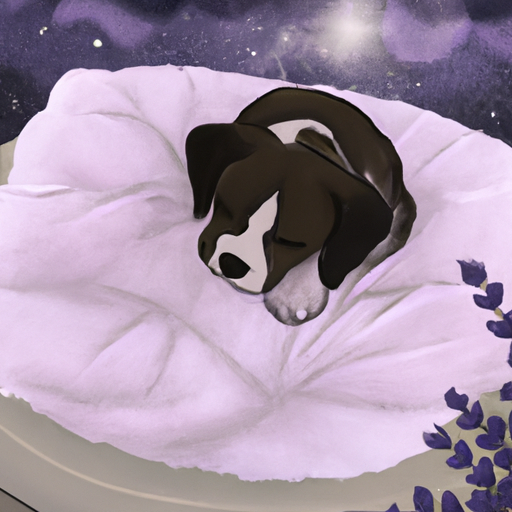Introduction
Getting your new puppy to sleep through the night can be a daunting task, especially when they’re crying and causing sleepless nights. But don’t worry. This comprehensive guide will provide you with the best strategies to ensure a good night’s sleep for both you and your furry friend.
Understanding Your Puppy’s Sleep Pattern
Just like human babies, puppies sleep a lot. They can sleep for 18-20 hours a day, but this sleep is often sporadic and can occur at any time.
Typically, puppies have a sleep-wake cycle as follows:
- Sleep: Puppies spend a significant portion of their day sleeping. This is essential for their growth and development.
- Activity: This is when your puppy is awake and active. It’s the best time for feeding, training, and playing.
- Rest: During this time, your puppy may seem awake but is relatively inactive.
Understanding these patterns can help you establish a routine that aligns with your puppy’s natural rhythm.
Creating a Sleep-Friendly Environment
Creating a comfortable, sleep-friendly environment is crucial for getting your puppy to sleep through the night. Here are some tips:
- Choose a quiet, dark place: Keep your puppy’s bed in a quiet and dark area where they won’t be disturbed.
- Make the bed comfortable: Ensure your puppy’s bed is soft and cozy. A combination of a good quality bed and a warm blanket can work wonders.
- Keep the sleep area clean: Regularly clean your puppy’s bed and replace the bedding to keep it fresh and inviting.
Establishing a Sleep Routine
Routines are essential for puppies. They help to establish a sense of security and predictability. Here’s how you can create a sleep routine for your puppy:
- Consistent bedtime and wake-up time: Set a specific time for your puppy to go to bed and wake up every day. This consistency helps regulate their internal clock.
- Bedtime rituals: Create rituals that signal it’s time to sleep. This could be a last pee break, a calm cuddle, or a bedtime story.
- Limit nap times during the day: To ensure your puppy is tired by bedtime, limit their nap times during the day.
Using Training Techniques
Training your puppy to sleep at night can be a great help. Here are a few techniques you can use:
- Crate training: Puppies naturally avoid soiling their sleeping area. A crate can help you house train your puppy and also give them a secure place to sleep.
- Reward-based training: Reward your puppy when they sleep without crying. This can reinforce the behavior you want to see.
Managing Nighttime Crying
If your puppy cries at night, it’s essential not to reinforce this behavior by giving them attention. Instead, try these strategies:
- Wait it out: Your puppy might stop crying if you ignore them for a while.
- Check for needs: Ensure that your puppy doesn’t need to go to the toilet or isn’t hungry or thirsty.
- Comfort object: A soft toy or a piece of clothing with your scent can provide comfort to your puppy at night.
Using Products to Aid Sleep
Various products can help your puppy sleep better at night. Here are a few you can consider:
| Product | Description |
|---|---|
| Dog Beds | A comfortable dog bed can make a big difference to your puppy’s sleep. |
| Crate | A crate gives your puppy a secure place to sleep. |
| Puppy Pads | Useful for toilet training, these can help manage midnight pee emergencies. |
| Soft Toys | These can provide comfort to your puppy when you’re not around. |
Frequently Asked Questions
Q: How long do puppies cry at night?
A: It varies. Some puppies may cry for a few days, while others may take a couple of weeks to adjust.
Q: How can I soothe my puppy’s separation anxiety at night?
A: Try using a comfort object, like a soft toy or a piece of your clothing. Gradual training can also help.
Q: Why does my puppy wake up crying in the middle of the night?
A: Your puppy could be hungry, need a toilet break, or be feeling anxious or scared.
Q: Can I use sleep aids for my puppy?
A: It’s best to consult with your vet before using any sleep aids or supplements for your puppy.
Remember, patience and consistency are key when it comes to getting your puppy to sleep at night without crying. With time and the right strategies, your puppy will soon be sleeping through the night, giving you both the rest you need.



